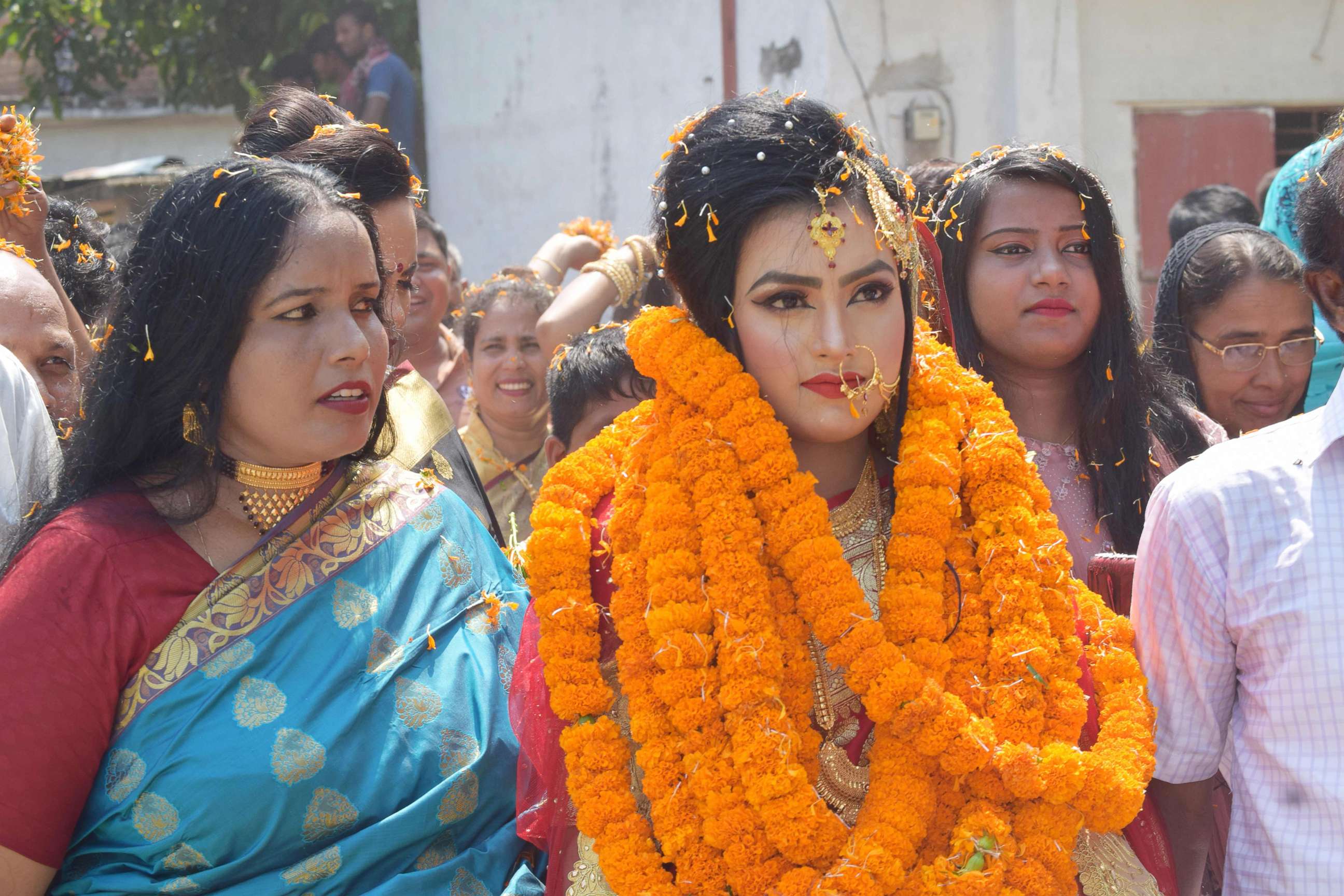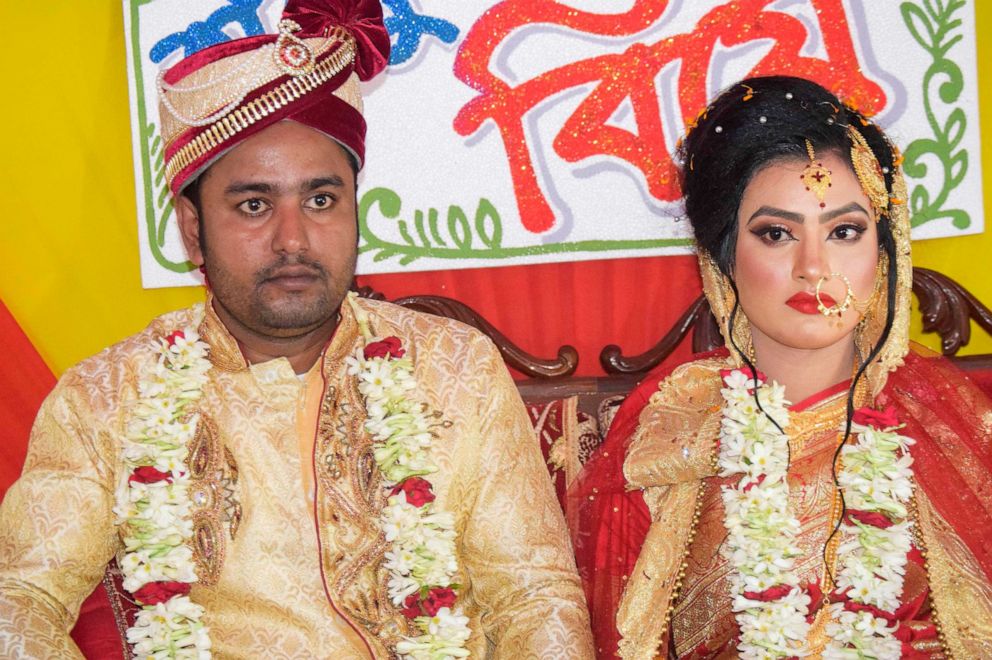Bride walks to groom's home in Bangladesh to empower women
"I did it so that other women can follow me."
A bride in Bangladesh turned a centuries-old custom on its head as a way to stand up for women's rights.
Khadiza Akter Khushi, 19, was photographed leading a procession of wedding guests to her groom's house before their wedding in Meherpur on Sept. 21.
The move upended the tradition in Bangladesh of the groom's party traveling to the house of the bride to begin the wedding ritual. After the wedding, the bride, according to tradition, leaves her family's home with her groom.

"Tradition is not the issue here," Khushi told BBC Bengali. "It is a matter of women's rights."
"Today, if a girl goes to marry a boy, then no one is harmed," she said. "Instead, abuse of women will decrease, women will get their dignity. No one will be less than the other."
Khushi's now-husband, Tariqul Islam, said he supported his bride and that the couple was supported by their families and friends.
"We did it as part of our efforts to end gender discrimination and to establish equal rights for women," he told AFP. "I am sure our marriage will send a message that a woman can do whatever a man can."

Bangladesh, with a population of approximately 160 million, is a Muslim-majority country that has a "significant history of women organizing movements to claim their rights," according to UN Women, the United Nations entity focused on gender equality and female empowerment.
The country ranks high in South Asia for gender equity, but women there suffer from high rates of violence and face discrimination in family life, where they are subject to religious laws, according to UN Women.
Khushi said she may be the first, but she hopes she is not the last woman in Bangladesh to start her marriage symbolically in control.
"Yes, it is uncommon," she told AFP. "But I did it so that other women can follow me."